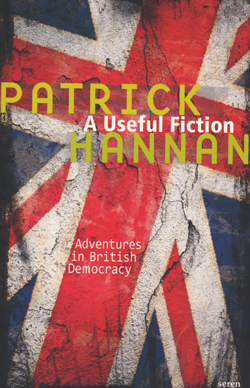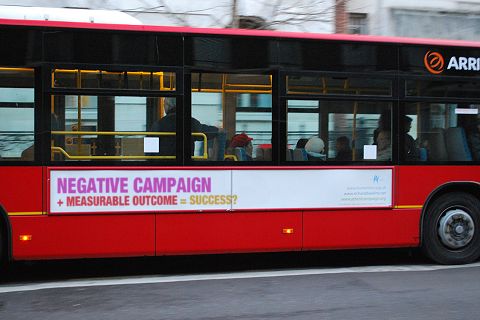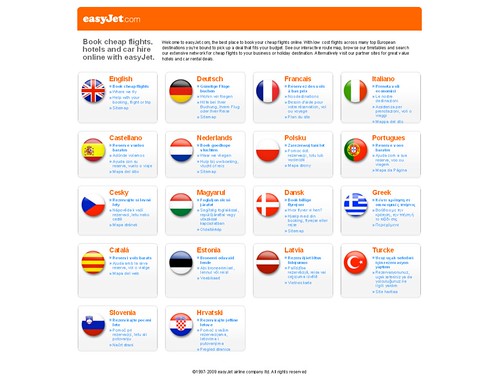One of my new year’s resolutions is to read more books.
Like old books, unfashionable novels and books which challenge my assumptions.
The benefits of books are clearer, now that we also consume digital text and hypertext. I’m not talking about how the smell of the paper is wonderful or anything like that. It’s about the relationship between the author and the reader. The author can write with the assurance that you’re on board. It’s possible for him or her to explore the diverse ideas that make up a theme, with a high degree of subtlety. These are the joys and rewards of commitment.
This renewed interest in books is going to require time from somewhere. I’ve always loved books but lately I’ve been distracted by the glow of the screen. So for me, this means reducing the amount of time I spend in my feed reader. This trade-off between book reading time and blog reading time is purely one which I have constructed for my own purposes. I try never to complain about not having time to pursue my interests. I make time for the things I value.
Blogs and books are totally different media, clearly. They are not in opposition. They can complement each other. Web log culture, relatively young, should be learning more from books. Not only the facts on the pages and not only the histories they present, but how to explore a theme.
I love blogging dearly. I love reading blogs and I am excited about the potential of blogging. I’ll continue to encourage others to blog about subjects they care about – in languages they care about. There are not enough blogs.
Part of the attraction of blogging, for me, is being able to put a page on the web quickly. But for the art of blogging to develop, that is only part of it. It has to be about the blog over time.
Let’s look at reading. When I show people a feed reader for the first time (almost invariably Google Reader), they often recoil in horror at the thought of another inbox – and who can blame them? Some of this stuff is time-limited and should just flow past, not accumulate (Dave Winer highlights the “inbox” shortcoming of Google Reader).
But my favourite blogs are the ones where I DO want to read everything.
I’m not looking at any proper research here, but I wonder if feed readers are declining. That’s a pity. Whether or not that’s true, they certainly need a boost. Good feed readers help the art of blogging.
If people aren’t using feed readers then it follows that they are peck-pecking haphazardly at links to individual posts received via Twitter, Facebook, email, search results and so on. I’ve done it. This is what people presumably mean when they refer to the “death of RSS”. As a technology, RSS is no more dead than HTML of course and to claim otherwise would be silly. But people seem happy to peck and let others throw the odd link to a snippet or giblet their way. Either that or they are “subscribing” to their favourite blogs by repeated visits in the web browser, rather than with feeds. Or, of course, they are not reading blogs at all.
Right now, in early 2010, as well as a devaluing of feed readers it feels as if other forces are converging to unbundle blogs. Rather than whole bundles, they are viewed as loose collections of individual posts. Attention spans and loyalty to specific blogs could be at an all-time low. This is akin to books losing their spines and pages fluttering away on a breeze. Gone is the continuity. Each post now has to fight for your attention. Granted, the edges of a blog are always more fluid than that of a book.
But following a particular blogger over a period of time is part of what makes the medium good (and fun).
The popular blogs exert an influence on expectations and practice. Some of the most popular and influential blogs are banner ad-supported. These blogs have an intrinsic problem of course – they need to pull the maximum number of eyeballs. This results in tabloidisation, Gawkerization or Techcrunching, if you will. How embarrassing. Most likely this does not align with our own interests for reading a blog, certainly not our long-term interests. Typically we need truth, insight, fairness and all the good stuff.
Instead, every single post has to hustle for attention. Crafted blog post titles become more important than they need to be, that’s one sign. In the text, you can sense the desparation to create a Digg firework which will shoot to the top. You know what I mean.
A common hustle is to present any given story as some kind of conflict or controversy. If you’re interested, read a recent Giles Bowkett post where he simultaneously mimics this and criticises it. The title of the post is Blogs are Godless Communist Bullshit – and the urge to click that title is strong, for reasons he explains.
This is not an exclusively online phenomenon, it’s also discernable in mainstream media. But it’s exaggerated and accelerated in its online form. How? Inbound links and SEO rapidly solidify the attention flows. This leads to more popularity. And Google search is merely a popularity filter. It filters what comes to your attention on the basis of popularity, along keyword lines. That’s very useful but not always in our long-term interests.
Everything that is wrong with the most popular blogs (and news sites, for that matter) can be traced back to this lust for eyeballs. Baseless gossip, sexism, lies, slander, unpleasantness, bullying, you name it. Bad science. Churnalism. Lazy writing and endless lists. The set-up creates the wrong motivations for these bloggers. They influence other bloggers with their woeful example. All but the strong are infested by mediocrity. Stay strong.
Blogs don’t tend to identify their own shortcomings. Techcrunch, for instance, won’t tell you that it does not deal with useful startup or business news that falls outside the venture capital system. “Everything on TechCrunch revolves around the venture capital system”, as another Giles Bowkett gem suggests.
More and better blogs will dissipate some of the influence of the crap. I think a good feed reader which doesn’t frighten normal people would help too. Maybe we could then cultivate our attention spans and intolerance of cheap firework tactics.
I wonder about the concept of a “blogosphere” and the limits to its explaining power. The blogosphere is a subset of the web. In a sense, the web is a network of pages and people. In another sense it is a network of ideas.
Networks have become very interesting in the last few years.
Networks of people make up societies.
Networks of machines make up the world wide web.
Networks of neurons make up brains.
It’s fun to get reductionist and attempt to draw parallels here. For example, Kevin Kelly is fond of saying that the internet is ONE HUGE MIND. It’s a web of machines and people. So we’re just nodes in the network. His enthusiasm is scary and funny. He also has a notion that human beings are the sex organs of technology. At a restaurant he might be the one to inform you that the beef tongue on your plate is getting ready to taste you in revenge. Like me, he’s a theist and a Christian so I obviously find that side interesting.
The blogosphere that I am conscious of is what I read and what’s in my feed reader, a subset of the whole blogosphere. Maybe we are dealing with a number of smaller, only sometimes overlapping blogospheres. How small and how overlapping? The flows of influence are hard to measure. You can look directly at outbound links but it’s harder to see contextual density. Which bloggers watch the same television programmes and which ones read each other?
My own blog is influenced by patterns in things I read, including hundreds of blogs I’ve read that you can’t see. They reinforce pathways in my brain.
By the way, this is why a regular subscription to a daily newspaper can be destructive, when people choose poorly. OK, I’ll name one: the Daily Mail. It tends to appeal to people’s innate selfishness, the same selfishness which is in all of us. Daily Mail writers know their market very well and taken regularly and uncritically the paper can amplify this selfishness. I think it will handle the unbundling of news very deftly too, the online headlines are some of the most sensational around.
Bringing this full circle, the best opponents to these negative media are healthy networks. See above.
So I’ll carry on blogging and attempting to grow the good network by telling people how fantastic WordPress is. But I’m also taking control of my own mental sphere and stirring some books into it, sometimes deliberately choosing things outside my immediate interests. Some excellent books throughout history have never been mentioned or discussed in a single blog post yet. I’ll link to them and dig them where I can.
 Sometimes I feel as if I’m always playing catch-up.
Sometimes I feel as if I’m always playing catch-up.


